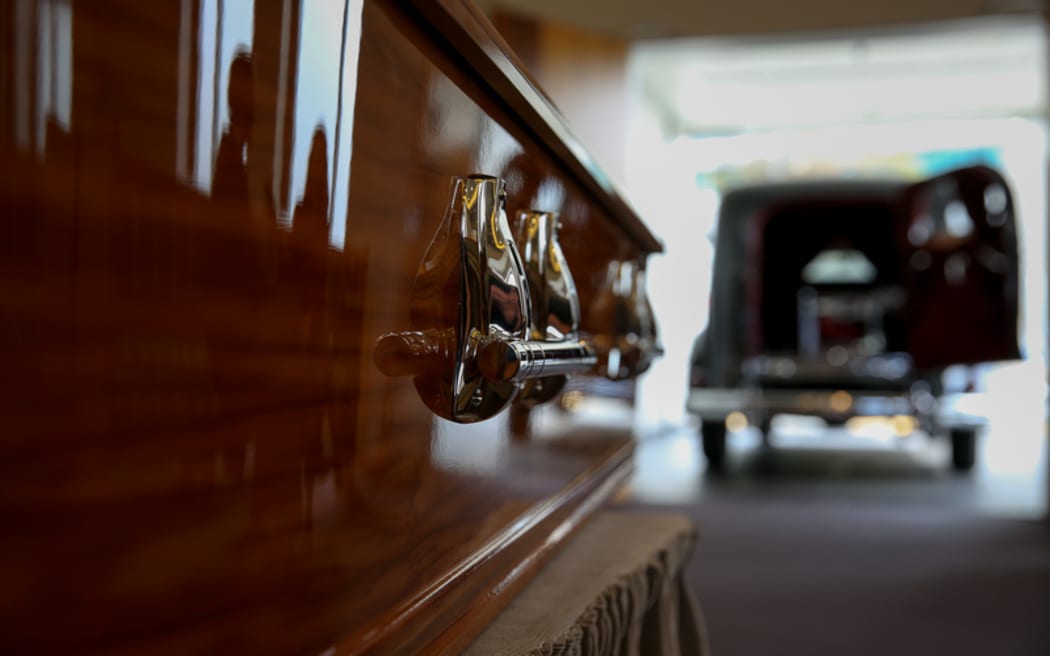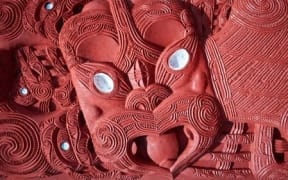A Parihaka woman who uses Māori traditions to bury the dead says the law needs to change to allow Māori to deal with death in their own way.

Photo: RNZ / Alexander Robertson
Maata Wharehoka is backing a Parliamentary inquiry which was launched today into how the deceased of Māori families or tūpāpaku are handled.
The Māori Affairs Select Committee will conduct the inquiry into whānau access to, and treatment of, tūpāpaku under the current laws.
One of the key issues for whānau is the sometimes drawn-out process before they can be with their family member.
For most of us, death will mean a trip to the morgue where our bodies will be drained of fluid and filled with preservatives before being put in a coffin and returned to our families.
For the Māori process Ms Wharehoka runs, family remain with the body at all times and make the final decisions on what happens to the body.
Ms Wharehoka has had up to 20 whānau members in the room while she tended to a body.
"I manage the tūpāpaku in such a way that involves not only the tinana [body] but I also work with the wairua [spirit] of that tūpāpaku as well, which is never ever addressed in Pākehā terms."
Under Mrs Wharehoka's cultural practice, whānau members help weave a flax mat or whāriki in which the body is wrapped before it is placed on a wooden waka or body transporter that is made at the same time.
Over the last nine years, Maata Wharehoka and her whānau have buried 70 tūpāpaku this way.
She said the current system is too clinical and wants to see it changed.
"It does not matter what they have got in the act today, we know that it is insufficient to cover the things that we as Māori need and desire to do."
"It should be the right of our people to chose how we manage this and for far too long we have been in a Pākehā system that has not given us that right."
The Māori Affairs Select Committee will run an inquiry into access to and management of tūpāpaku.
Chairman Tutehounuku Korako said committee members have heard concerns from whānau who had really traumatic experiences with their loved ones dying in hospital, and with Sudden Infant Death Syndrome and stillborn in particular.
Among other things, the inquiry will consider the power and practices of pathologists, coroners, police and funeral directors.
Whānau struggled with what can sometimes be a long wait for a body to be returned to them, through hold-ups in hospital, if pathologist reports were needed or if police were involved.
Green Party MP Marama Davidson said there were also more modern dilemmas that needed to be examined.
"We have long known for the troubles that Māori have had, for example getting tūpāpaku back from overseas back to Aotearoa."
"And also issues like the tikanga Māori processes - how does that sit alongside the agency processes."
The committee is calling for submissions from experts and whānau before the end of June.
It is hoped the process will result in tikanga Māori being accommodated in law and ultimately a better cultural experience for whānau when a family member dies.



